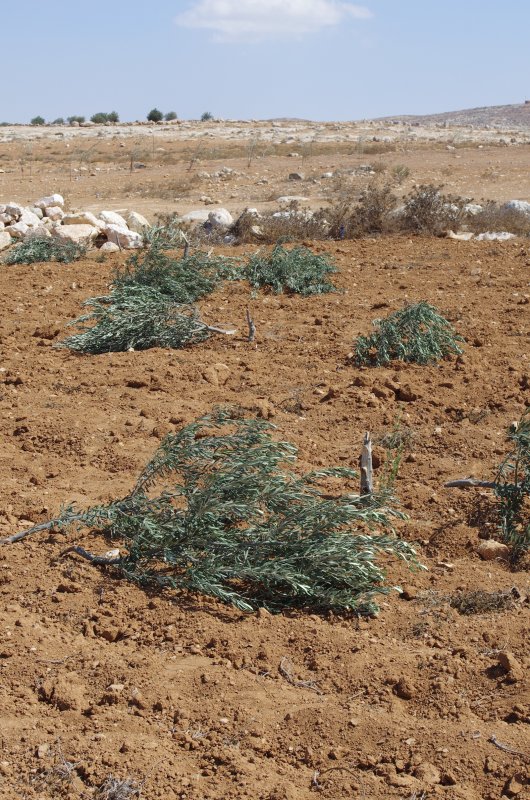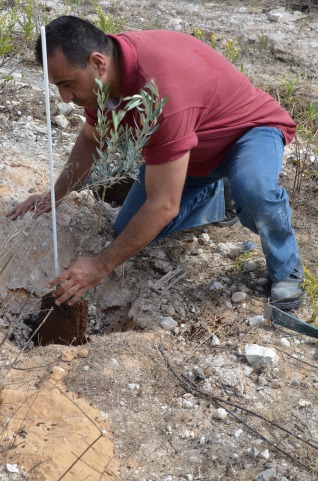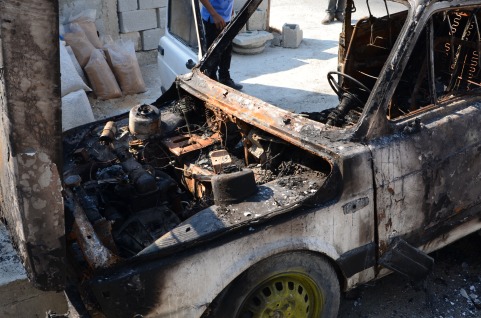Tag: Olive Trees
-
48 young olive trees destroyed in South Hebron Hills
4th October 2013 | International Solidarity Movement, Operation Dove | Qawawis, Occupied Palestine Yesterday morning, 3rd October, Palestinians discovered 48 olive trees destroyed alongside bypass road 317 near the South Hebron Hills area village of Qawawis. The olive tree grove belongs to Ali Shetat from Qawawis and had been planted six years ago. At 10…
-
Palestinians celebrate the reclaiming of their land
4th October 2013 | International Solidarity Movement, Nablus Team | Burqa, Occupied Palestine On Thursday the 3rd of October, a large group numbering around a 100 people, consisting mainly of Palestinians from the village of Burqa and the surrounding areas, as well as a smaller contingent of international activists and the press, celebrated the Palestinians’ reclamation of…
-
Cars burnt by settlers in Huwwara
2nd October 2013 | International Solidarity Movement, Nablus Team | Huwwara, Occupied Palestine In the early hours of 1st October settlers from the settlement of Bracha set fire to two cars parked outside the house of Edrees Shehadeh in Huwwara. This attack forms part of a sustained campaign of intimidation against the village, which includes…



